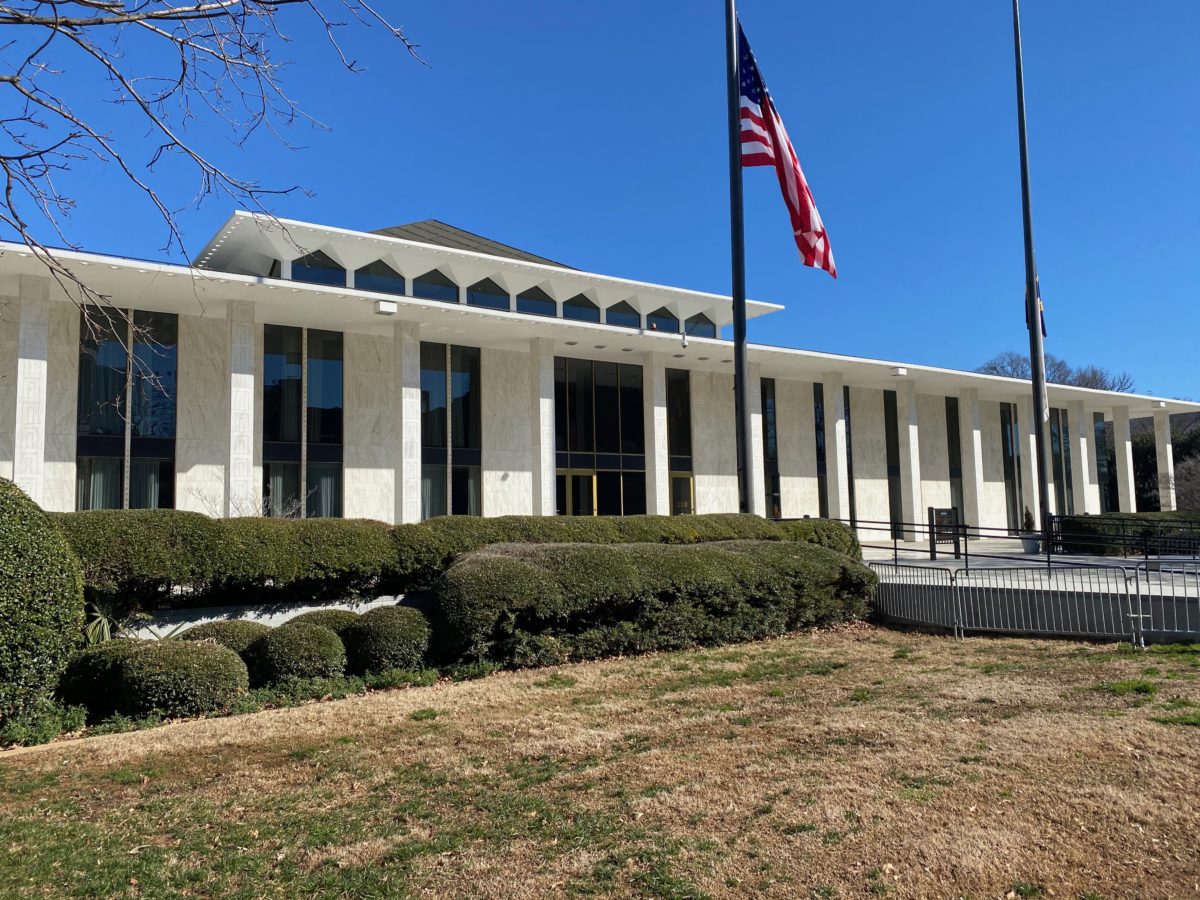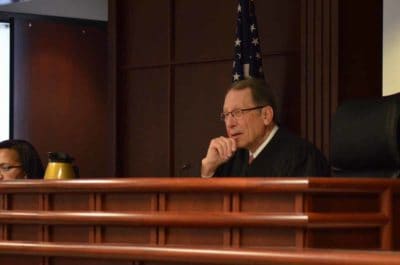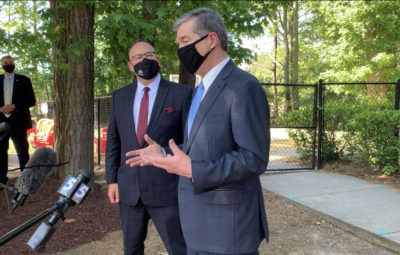
|
|
Update: Last night, WRAL had breaking news that the state House is going to go ahead and start working on its budget next week despite the fact that the Senate has not yet delivered its two-year spending plan. The Senate was slated to go first this year in the budget process but its spending proposal has been delayed. WRAL reported that the House announced their budget committees following the Senate taking up a tax cut proposal this week that would — if it becomes law — significantly cut into the amount money the state has to spend in its budget.
It was midway through April when Judge David Lee held a hearing in the long-running Leandro case to take a look at the comprehensive remedial plan put together by the parties in the case. That plan has since made nary a ripple in that big pond that is the General Assembly — the body that will actually have to allocate the money laid out in that plan if it is to go forward.
There was some movement this week, however, from legislative Democrats. At a press conference this week, a group of House members discussed the introduction of a bill (House Bill 946) titled, “Sound Basic Education for Every Child,” which puts into action the first two years of the long-term plan heard by the court.
Quick background: The Supreme Court of North Carolina, in its landmark Leandro v. State of North Carolina decision, affirmed the fundamental right of every child to have access to a sound, basic education. The courts also ruled that North Carolina was not meeting this constitutional requirement. The courts and parties have been trying to figure out how to make this right ever since — the comprehensive remedial plan heard most recently is the most ambitious attempt made yet to do so.
Ok, back to that press conference. Here is what Rep. Ricky Hurtado, D-Alamance, said about HB 946, according to a press release: “The Leandro decision requires North Carolina to implement a plan that will ensure all children, including those from rural and underserved communities, have access to a sound, basic education. Our bill would put the state on track to meet the requirements agreed upon by the Court.”
Here is what House Democratic Whip Raymond Smith, D-Wayne, said: “Counties are often expected to fill in funding gaps when our schools have unmet financial needs. Not only is that expectation inequitable, but it is also unconstitutional. HB 946 would spur our state to take action and begin to resolve the statewide funding inequities that predominantly harm rural, low-income, and high-risk students.”
And here is what Rep. Rachel Hunt, D-Mecklenburg, said: “The COVID-19 pandemic has exacerbated the inequities that are the focus of the Leandro case, particularly for students from low-income families, students with disabilities, and English Language Learners. If we truly want to serve our most marginalized students and prepare them for a more prosperous future, we don’t have any time to waste.”
Unfortunately for those hoping to see this bill become law, it has been sent directly to the House rules committee, which House Democrats admit is essentially being sent to the “Bill Graveyard.”
“I was disappointed to see our bill sent directly to the Rules Committee instead of to an Appropriations Committee for review,” said Rep. Julie von Haefen, D-Wake, in a press release. “I sincerely hope that House leadership will take the Court’s order seriously by considering our proposal during budget negotiations.”
Incidentally, the two-year spending proposal submitted by Democratic Gov. Roy Cooper in March also attempts to move forward with aspects of the Leandro comprehensive plan. But don’t be too optimistic: The Senate and House (both Republican majorities) have to come up with their own two-year budget plans and are under no obligation — nor are they likely — to include the governor’s plans with regard to Leandro.
For instance, the stance of Sen. Deanna Ballard, R-Watauga, a chair on both the education and education appropriations committees in the Senate, is that the General Assembly is already “on track to outspend what WestEd’s report was even suggesting or recommending.” In this Q&A, she said that lawmakers have also already enacted some recommendations in the report that are often overlooked by critics of Republicans. But she did not weigh in on any comprehensive acceptance of the plan submitted to the court.
Senate Democrats spending priorities
There is still no word on a budget from the Senate, which will be the first chamber in the legislature to submit a spending plan. When that budget comes up, it will largely reflect the goals of the Republicans who hold the majority in the Senate (as well as the House). But in the meantime, Senate Democrats held a press conference this week to talk about their spending priorities for the next two years.
According to a press release, those priorities include:
- $400 million in American Recovery Plan (ARP) funds for small business stimulus.
- $20 million to help RETOOL NC support struggling businesses.
- Reinstate the state’s Earned Income Tax Credit (EITC).
- $8 million to help farmers improve water quality.
- Funding for dam maintenance and landslide hazard mapping.
- Add 1,500 new NC Pre-K seats beginning in 2022-23.
- $31 million in general road maintenance.
- $5.6 million for bridge repairs.
- Create a pay plan for correctional and juvenile justice workers.
- Invest $11.6 million in reentry programs to combat recidivism.
“I believe that Republicans and Democrats alike have the same goal in mind this session,” said Senate Democratic leader Dan Blue, D-Wake, in a press release. “We want to see a budget come to the floor that all 50 members can support, and that the Governor will sign.”
Broadband
The House passed a bill this week that includes $750 million in federal COVID-19 relief funding to expand high-speed broadband internet around the state.
During the COVID-19 pandemic, and because of the subsequent movement of students from classrooms to online, the need for expanded high-speed internet access became clear.
“North Carolina has been a national leader when it comes to expanding rural broadband,” said Rep. Dean Arp, R-Union, senior chair of the House Appropriations Committee and a primary sponsor of the bill, in a press release. “With additional funding coming from the federal government, we have a tremendous opportunity to close our state’s digital divide. This legislation capitalizes on these resources and puts forth a bold and unprecedented investment to connect all North Carolinians to high-speed internet access.”
COVID-19 relief
The governor signed into law this week a bill that allocates more than $3.2 billion in federal COVID-19 relief for the state’s public schools.
The bill’s passage and governor’s signature are largely a formality. The money is meant to go directly to the state’s public school districts and merely passes through the state’s legislative and executive branches.
Nevertheless, in the email where he announced the signing of the bill, Cooper said, “It’s critical that these funds be used to emerge from the pandemic even stronger than before with rent and utility assistance, food for children, help for local governments and help for children trying to catch up in school.”





